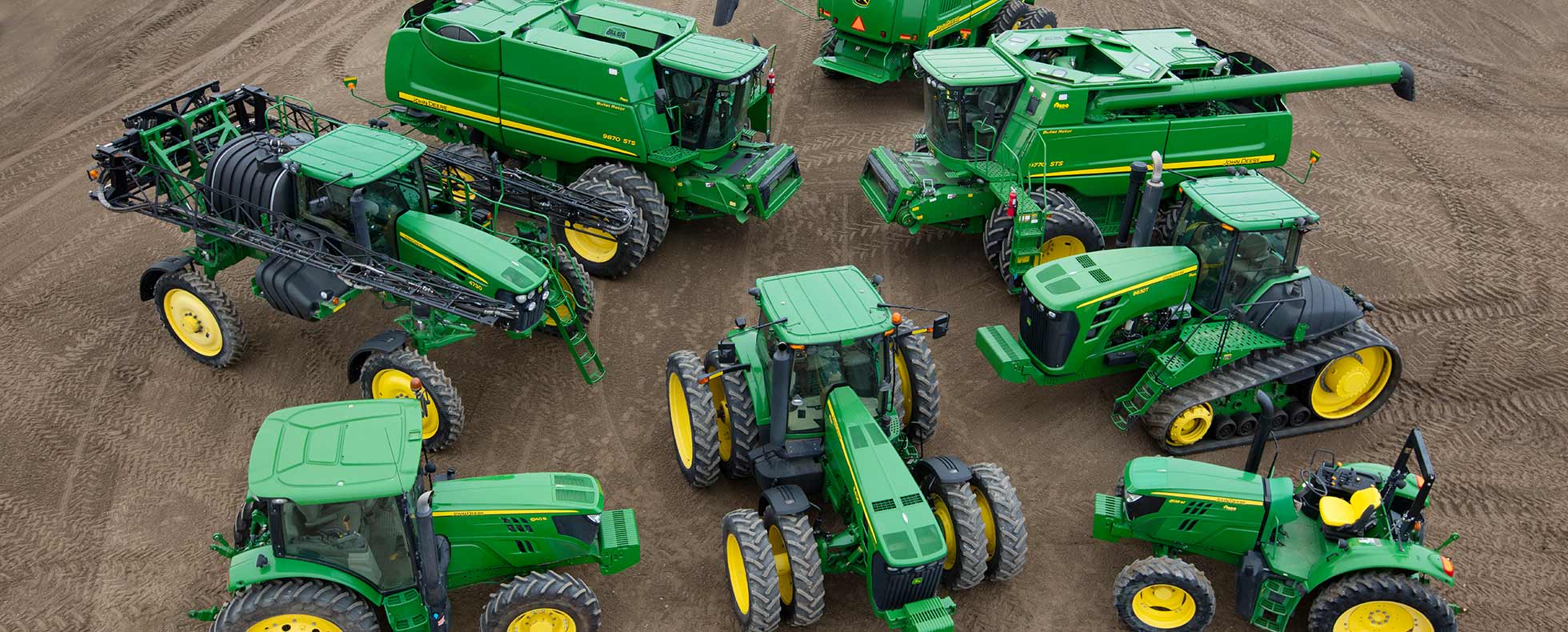
The equipment world has become globally connected. Companies in most countries are doing work that requires compact and heavy machines, and, even if located on U.S. soil, many companies do business in other countries.
What this means is, regardless of location, companies need equipment. Period. Buying machines for global use is a complex task – but it doesn’t have to be a complicated one, especially if working with the right equipment partner. A reputable, experienced equipment dealership, like RDO Equipment Co., will help guide the process, including these four key areas when buying equipment for international use.
1. Budget Importance
New or used. Large or mid-size. One attachment or a dozen. There’s no shortage of available equipment to buy. It’s important to remain focused on the need to find the right machine. To avoid getting caught up in the options and making a purchase that might be more than what’s needed, the first step is to set a budget. Especially with new equipment becoming more sophisticated and expensive, a quality pre-owned machine might be a better investment than a brand-new one.
When it comes to staying on budget, there are advantages of working with an equipment dealership. A trusted dealer will work within budget to find the right machine, rather than try to sell something that has been on the lot too long or is the most expensive model. RDO Equipment Co., for example, always begins a partnership by discussing a customer’s unique operation, needs, and budget. After getting to know the customer’s business, the team discusses inventory and options, then works to deliver the equipment that best fits a customer’s needs and budget.
2. Condition and Tier Matter
The condition of equipment is especially important when looking at global use. Reliable, field-ready condition equipment is important, and a trusted seller should be able to offer a complete history of the machine and service records. Not every seller is able to provide this so it’s something to take into consideration well in advance of a purchase.
Additionally, different countries have different Tier requirements for diesel engines. While some countries are already requiring Tier 4 and even Tier 5 compliant machines, others are still allowing Tier 2 and Tier 3. Be aware of the tier conditions in the area the equipment will be operated in order to find suitable machines.
3. Export Details
Whether heavy or compact, agriculture and construction equipment isn’t something that can be shipped globally at a local post office. Several steps and considerations go into international exporting. In addition to options of roll-on/roll-off, or the process of disassembly, containerization, and reassembly of the machines themselves, there are the logistical considerations of having proper documentation and insurance, tracking shipments, and clearing customs.
Many companies don’t have the time or expertise to take on the international equipment export process. The good news is, a reputable equipment dealership does – and will do it smoothly and securely. Furthermore, because of the volume they export, many have good relationships and ability to get competitive rates from shipping companies.
4. After-Sale Support Needs
When the equipment arrives onsite, what’s the plan for ensuring it works properly – from day one to well beyond the first year? Who’s in charge of maintaining and servicing the equipment? What about when the unexpected happens and troubleshooting help is needed? Determine these needs up front and have a plan in place for execution. Part of this plan may again involve partnering with an equipment dealership for best results.
Dealerships offer varying levels of support in different countries. Finding one that’s able to provide after-sale support, world-wide, takes the burden off team members and helps protect the equipment investment. Consider a company that offers 24-hour call and email availability for questions and troubleshooting, as time zones can limit the window of connection. Those with partnerships in international countries offer greater advantage, with sales and service team members available in-person to assist.
Whether a company is exporting machines to global jobsites, or located outside the U.S. and looking for quality equipment, there’s more to consider when buying equipment for international business vs. domestic. Anytime equipment is being purchased and shipped from one country to another, partnering with an experienced dealership is a smart way to begin the process. Find the right one that will help you navigate these four crucial areas of buying equipment for international use.
--
Learn more about buying and shipping both new and pre-owned agriculture and construction equipment.